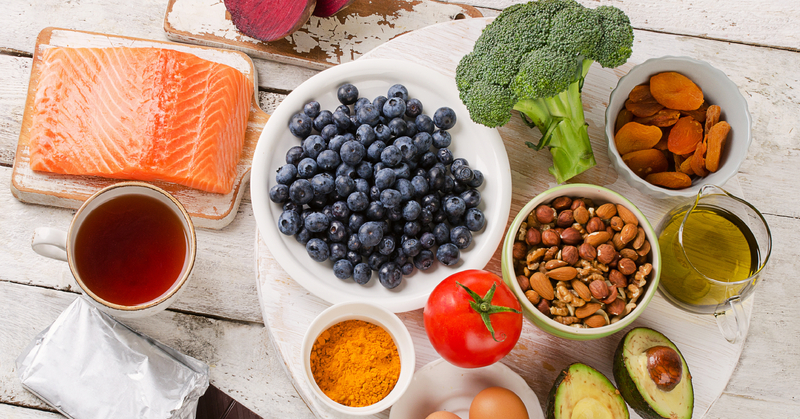
Wondering what inflammation-fighting foods to add to your diet? Try these 10 powerhouses.
Inflammation can be a good thing. Your immune system sends out inflammatory cells when it detects bacteria, viruses or toxins to help protect you from illness. If you are injured, this same inflammatory response jumpstarts the healing process. But too much of a good thing is not so good.
If your body continually creates an inflammatory response even when it is not faced with infection or injury, the inflammation can become chronic. This can damage healthy cells and tissue, causing pain, fatigue and other symptoms affecting physical and mental health. Chronic inflammation may even contribute to serious health conditions, including Alzheimer’s, heart disease, arthritis and type 2 diabetes.
A number of lifestyle factors can make you more prone to developing chronic inflammation. What you do or don’t eat, how much you exercise and sleep, whether you smoke or drink alcohol, and other factors like your weight and stress level can all affect inflammation in the body.
One helpful way to lower inflammation is to eat fewer processed foods containing added sugars and unhealthy fats. Instead, add these 10 foods that fight inflammation to your diet:
- Berries: Strawberries, blueberries, raspberries, blackberries and other types of berries are packed with fiber, antioxidants and potent phytochemicals such as anthocyanins that help reduce inflammation.
- Salmon: Cold-water fish like salmon, herring, mackerel and anchovies are a good source of protein and omega-3 fatty acids. Your body metabolizes omega-3s into compounds that fight inflammation and keep cholesterol in check.
- Broccoli: Cruciferous vegetables such as broccoli, cauliflower, Brussels sprouts, cabbage, arugula and kale are rich in sulforaphane, an antioxidant that helps decrease inflammation. They also contain soluble fiber, which keeps digestion on track.
- Avocado: Along with potassium, magnesium and fiber, avocado is full of heart-healthy monounsaturated fats, vitamin E and carotenoids, which may reduce inflammation.
- Tomato: This bright and colorful fruit (yes, tomato is a fruit!) is not only high in vitamin C and potassium but is loaded with lycopene, an antioxidant that helps fight inflammation.
- Walnuts: This protein-rich nut contains monounsaturated fats, vitamin E and magnesium, which may reduce inflammation and lower the risk of heart disease. Almonds are also good inflammation-fighting foods.
- Green Tea: This beverage is full of antioxidant and anti-inflammatory properties due to its high catechin content. This may reduce the risk of several health conditions, including heart disease, obesity and cancer.
- Olive Oil: Antioxidants and polyphenols in olive oil, such as oleocanthal, combat inflammation and help protect cells in your body. These anti-inflammatory properties may be why olive oil is a staple of the Mediterranean diet.
- Oranges: This citrus fruit is a great source of vitamin C, which strengthens your immune system. Oranges also contain fiber, folate and flavonoids, which help keep the heart healthy and decrease inflammation.
- Turmeric: When it comes to spices that fight inflammation, turmeric ranks at the top of the list. This spice has a warm, earthy flavor and contains curcumin, a powerful anti-inflammatory compound.
Copyright 2023 © Baldwin Publishing, Inc. Health eCooks® is a registered trademark of Baldwin Publishing, Inc. Cook eKitchen™ is a designated trademark of Baldwin Publishing, Inc. Any duplication or distribution of the information contained herein without the express approval of Baldwin Publishing, Inc. is strictly prohibited.
Date Last Reviewed: August 15, 2023
Editorial Review: Andrea Cohen, Editorial Director, Baldwin Publishing, Inc. Contact Editor
Medical Review: Jane Schwartz, RDN, CLT
Learn more about Baldwin Publishing Inc. editorial policy, privacy policy, ADA compliance and sponsorship policy.
No information provided by Baldwin Publishing, Inc. in any article is a substitute for medical advice or treatment for any medical condition. Baldwin Publishing, Inc. strongly suggests that you use this information in consultation with your doctor or other health professional. Use or viewing of any Baldwin Publishing, Inc. article signifies your understanding and agreement to the disclaimer and acceptance of these terms of use.